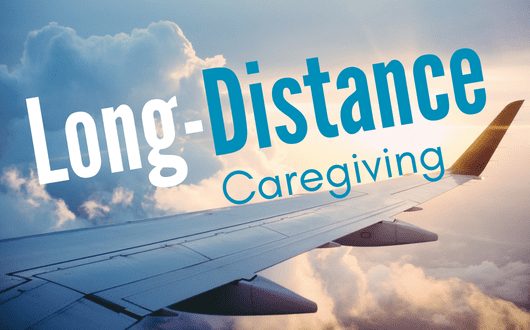Long-Distance Caregiving
Tuesday June 19, 2018

Caring for a loved one from a distance has its own struggles. If no other family lives near your aging parents, how do you ensure someone is looking out for them? If another family member is caring for your loved one with memory loss, how do you help?
You may feel helpless, but you are not helpless. We’ve got your back and an action plan! These are our tips for long-distance caregivers. If you have questions that aren’t addressed here or just need a listening ear, give us a call at 901.854.1200.
For ALL long-distance family:
- Call your loved one on a regular basis. Even if conversation is repetitive and/or doesn’t make sense to you, the connection is important. Keep in mind that Facetime or Skype might confusing for someone with cognitive impairment.
- Send cards, notes, and photos. A physical piece of mail can give joy over and over again.
- Plan your visits to make the most of your time together. Make time for errands AND quality time. Get the household tasks completed and schedule appointment when you can be there.
- Gather information and resources. Take time to learn about your loved one’s condition, so you can help anticipate needs. Make a list of support in the area, such as friends and church members who can assist when something comes up and you cannot be there.
If other family does not live locally with your loved one:
- Find a geriatric care manager. He/she can be your eyes and ears when you cannot be there. A care manager can accompany your loved one to appointments, report to you about your loved one’s condition and provide a host of other services.
- Plan ahead. When you are in town, prepare for the future. You never know when circumstances will change for your loved one. Interview in-home care agencies early, tour residential facilities, etc. When crises arise, you will have a plan in place.
- Complete medical information releases, so you can have contact with your loved one’s physicians as needed.
If another family member who lives locally is providing primary care:
- Thank the primary caregiver. Call, tell him/her in person, send a note. When you are far, one of the best ways you can care for your loved one is by making sure the primary caregiver is emotionally supported.
- Listen to the primary caregiver. Resist the urge to constantly interject what you would do in the situation. It is hard for the primary caregiver to constantly hear how he/she could be doing things “better” or differently. Don’t make their days more difficult. It is important to just listen.
- Believe the primary caregiver when he/she tells you what is going on. You may think: Mom would never do that. But those with dementia usually do things in front of the person closest to them that they wouldn’t do in front of anyone else.
- Give the primary caregiver a break. Plan ahead for visits and allow the primary caregiver to check out for some time (a few hours, overnight, a week).
Found this helpful and want to learn more? Check out this resource page from The Alzheimer’s Association.




